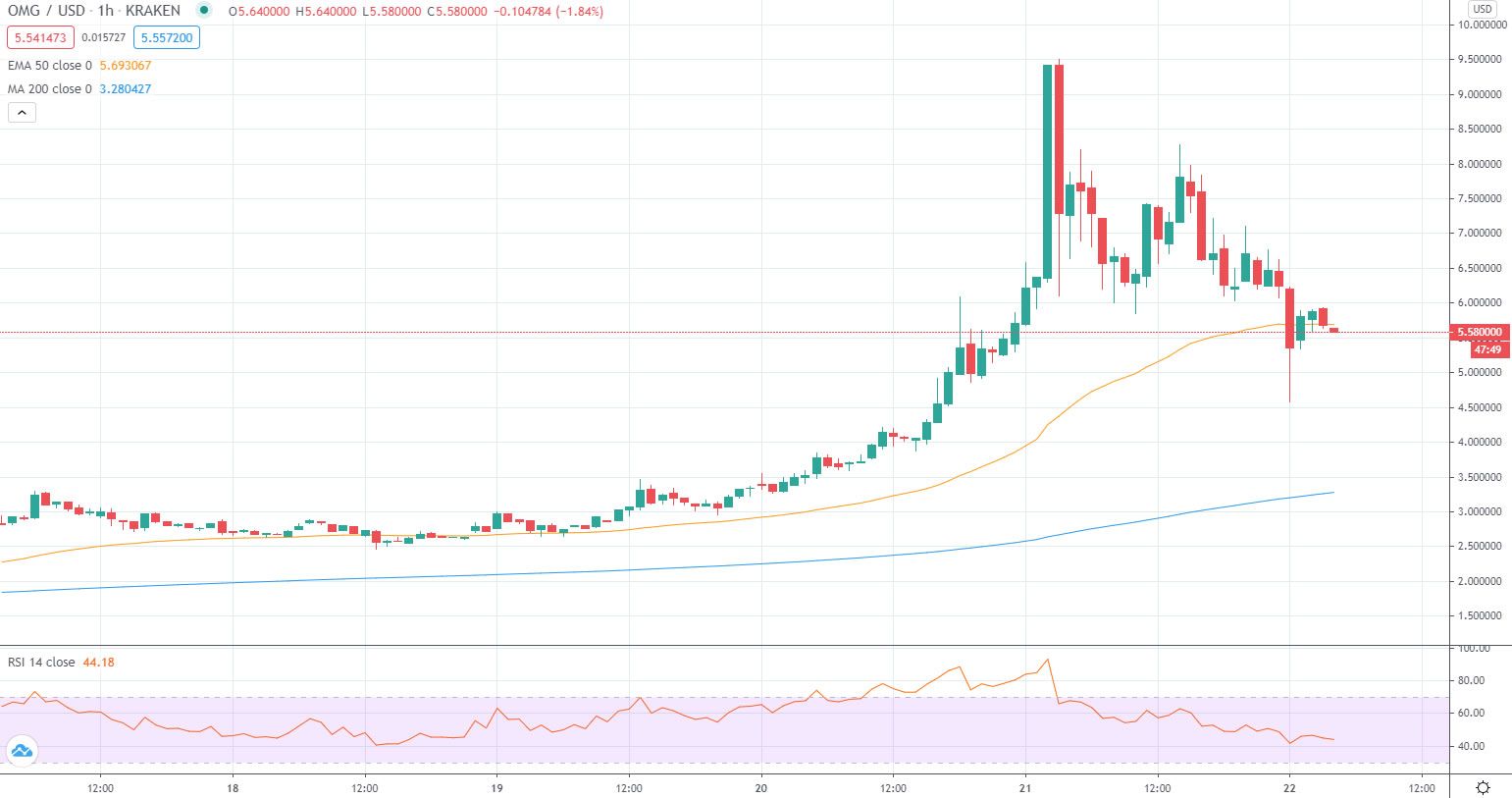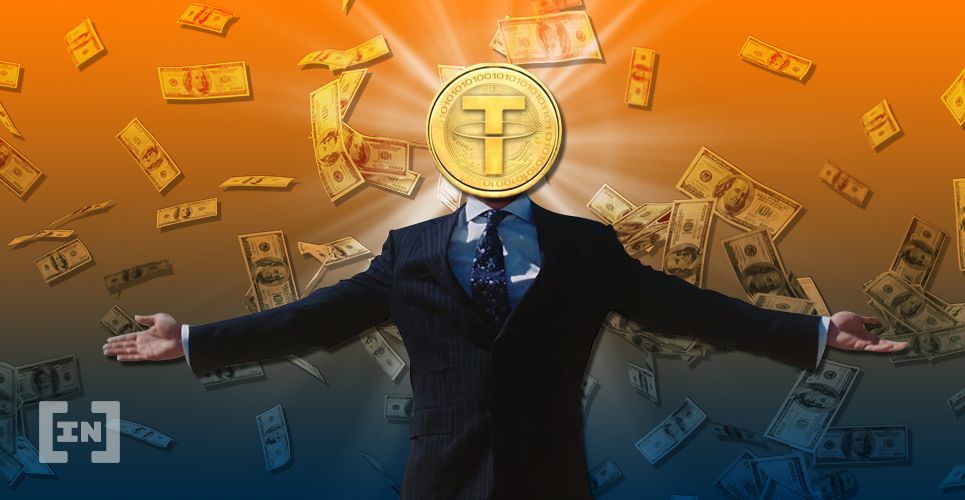The DeFi boom of 2020 has taken its toll on the Ethereum network, making the cost of most minor transactions for regular users completely unfeasible. The world’s leading stablecoin, Tether, has turned to the OMG Network in an attempt to alleviate some of this pressure.
In an announcement this week, Tether stated that it has now gone live and been integrated on the high-speed OMG Network. The move comes as average Ethereum network fees surge to their highest ever levels.
Tether’s partner exchange, Bitfinex, has started to use the OMG Network to facilitate faster and more cost-efficient deposits and withdrawals of USDT in times of high demand. The OMG Network was formerly called Omise GO, a high-speed Ethereum-based Layer 2 payments platform, launched in 2017. The network has the capacity to process several thousand transactions per second, at a fraction of the cost of base-layer Ethereum transactions. This is made possible by using the Plasma L2 scaling solution to batch larger groups of transactions within a single block on the Ethereum chain, reducing transaction times and costs.We are pleased to announce that Tether (USDt) is live on the OMG Network transport layer.
— Tether (@Tether_to) August 19, 2020
Read our full announcement ⬇️https://t.co/aeKiyyGxmf pic.twitter.com/5EKJGUPxjM
Network Fees
According to ethgasstation.info, Tether is the second-highest source of network fees on Ethereum, accounting for $6.4 million over the past 30 days. Only Uniswap has a higher gas usage at just under $7 million over the same period. CTO at Tether, Paolo Ardoino, stated that the transition was good for the entire Ethereum ecosystem,By migrating USDT value transfers to the OMG Network we save costs, drive performance improvements and relieve pressure on the root chain network. This is good for Bitfinex and our customers, and the whole Ethereum ecosystem.Aside from Ethereum, Tether is issued on a variety of public blockchains including Algorand, EOS, Liquid, Omni, and Tron. Vansa Chatikavanij, CEO at OMG Network, added that the transaction validation times will be reduced to a few seconds with transaction fees of a few cents,
We aim to solve the problem of Ethereum congestion and high gas fees by integrating with exchanges, wallets, custodians and dApps. We believe the migration of USDT to the OMG Network will significantly reduce the monthly costs associated with using Ethereum,
OMG Price Spikes on Tether News
The OMG Network’s native token, OMG, was revived by the move following two years of lethargy. As with most altcoins that skyrocketed in late 2017, OMG had slumped over 90% from its all-time high of $27, spending the better part of the past year below a dollar. The Tether integration has resulted in a significant move in OMG as the token skyrocketed to $9.4 on Friday, according to Tradingview.com.
Average Gas Fees at Record Highs
Total transaction throughput on Ethereum is currently capped at roughly 12 transactions per second (TPS). When demand exceeds this cap, settlement times increase, and gas costs rise significantly. This is clearly evident in the past few months as DeFi yield farming and token swapping took off. Average network fees are currently at record highs, according to bitinfocharts.com. With a monumental spike to an average cost of $6.63 on August 13, the reading is at historic highs.
Another ATH for DeFi Markets
There is no slowing down in the world of DeFi as total value locked (TVL) across all platforms hit another all-time high on Friday, August 21. DeFi Pulse recorded a TVL of $6.76 billion, marking a monumental gain of 70% this month alone. Today, this figure has fallen slightly to $6.55 billion but is still up a whopping 860% since the beginning of 2020. Maker is the leading platform with a TVL of $1.4 billion and a market share of 21.3%. Aave has retaken the second spot in the TVL charts with $1.3 billion, an increase of 4% over the past 24 hours. Curve Finance is the third billion-dollar DeFi protocol with a 2% climb on the day. The once darling of DeFi, Compound, holds the fourth position as its TVL retreated slightly to $780 million. Most DeFi platforms are in the red today as investors withdraw crypto collateral from the markets. The only other exceptions to this (apart from Aave and Curve) are Yearn Finance, Flexa, and dForce.Disclaimer
In adherence to the Trust Project guidelines, BeInCrypto is committed to unbiased, transparent reporting. This news article aims to provide accurate, timely information. However, readers are advised to verify facts independently and consult with a professional before making any decisions based on this content. Please note that our Terms and Conditions, Privacy Policy, and Disclaimers have been updated.

Martin Young
Martin Young is a seasoned cryptocurrency journalist and editor with over 7 years of experience covering the latest news and trends in the digital asset space. He is passionate about making complex blockchain, fintech, and macroeconomics concepts understandable for mainstream audiences.
Martin has been featured in top finance, technology, and crypto publications including BeInCrypto, CoinTelegraph, NewsBTC, FX Empire, and Asia Times. His articles provide an in-depth analysis of...
Martin Young is a seasoned cryptocurrency journalist and editor with over 7 years of experience covering the latest news and trends in the digital asset space. He is passionate about making complex blockchain, fintech, and macroeconomics concepts understandable for mainstream audiences.
Martin has been featured in top finance, technology, and crypto publications including BeInCrypto, CoinTelegraph, NewsBTC, FX Empire, and Asia Times. His articles provide an in-depth analysis of...
READ FULL BIO
Sponsored
Sponsored
